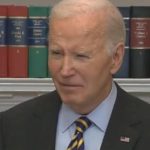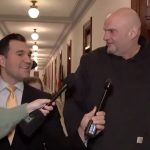Justin Sullivan /Getty Images
- Google told advertisers it’s banning all ads that refer to the US presidential election after polling finishes, Axios reports.
- Google confirmed Tuesday it’s enacting its “sensitive events” policy because “an unprecedented amount of votes will be counted after election day this year”
- It has not given a fixed time limit on how long the ban will last, though a source told Axios it’s likely to last at least seven days.
- Visit Business Insider’s homepage for more stories.
After polls close in the US, Google will stop anyone from running political ads on its platform, the tech giant announced Tuesday.
Axios was the first to report the news on Sunday, saying Google sent an email to advertisers informing them of a ban on all ads related to the US election as part of its policy on “Sensitive Events.” Google confirmed this in a blog post Tuesday.
“Given the possibility of delayed election results this year (and to limit the potential for ads to increase confusion post-election), we made the decision to enforce our Sensitive Events policy as soon as the polls close on November 3, which will temporarily pause ads referencing the 2020 election, the candidates, or its outcome,” Google’s Director of Trust and Safety Amanda Storey wrote in the blog post.
Google did not say exactly how long the ban might last, although a source told Axios that advertisers could expect it to last for at least seven, and that Google would review it on a weekly basis after that.
Google’s publicly available guidelines on “Sensitive Events” state it does not allow ads that “potentially profit from or exploit a sensitive event with significant social, cultural, or political impact, such as civil emergencies, natural disasters, public health emergencies, terrorism and related activities, conflict, or mass acts of violence.”
Google is not the first tech company to start constraining ads in response to the US election. Facebook announced in September it would ban new political ads in the week before the election to curb the potential spread of misinformation.
Twitter banned all ads mentioning political candidates, elections, and ballot measures in November last year, though it made some exceptions for news publishers and “cause-based” ads.
Google is already dealing with a huge influx of demand for political ads. Bloomberg reported last week that Google-owned YouTube is running out of ad space slots for political campaigns in swing states.
Powered by WPeMatico






